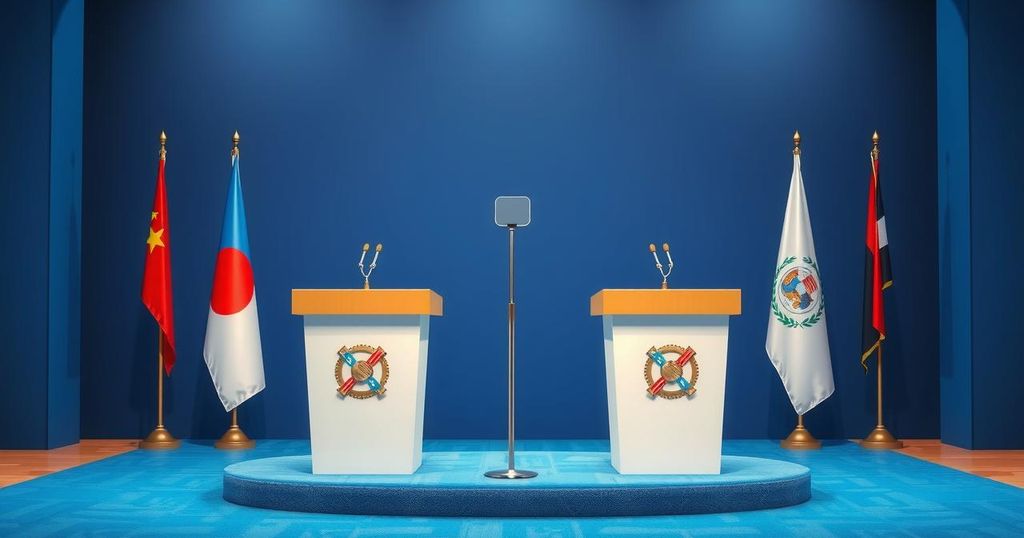Argentinian President Javier Milei’s recent visit to Washington aimed for favorable trade terms with Trump amidst economic recovery efforts in Argentina. Despite some progress, analysts suggest it may lead to limited trade exemptions rather than a comprehensive agreement. With an impending IMF loan and improvements in key economic indicators, Milei’s administration faces challenges in navigating domestic discontent while fostering international relations.
In February, Argentine President Javier Milei traveled to Washington aiming for favorable trade terms amidst looming U.S. tariffs. Since taking office in December 2023, he has aggressively pursued government reduction measures, including a 10% workforce cut and a streamlined cabinet, leading to Argentina’s first budget surplus in over a decade. Alongside this, inflation has decreased significantly, achieving its lowest point in five years, and poverty rates are also declining.
Milei has garnered attention from the Trump administration, having received accolades from Trump and securing a brief meeting during his visit. Despite his aspirations for a U.S.-Argentina free trade agreement, experts suggest that such a deal may take years to materialize. Instead, limited trade exemptions could potentially be on the horizon, as Milei optimistically re-engaged with U.S. trade discussions, notably following a series of positive interactions with Trump.
Milei’s administration is reportedly nearing a deal for a new $20 billion loan from the International Monetary Fund (IMF), which could facilitate economic reforms, including relaxing currency controls post-elections. The IMF has commended Milei for Argentina’s economic progress, which could offer further stability if trade conditions improve.
While Milei expresses aspirations for trade cooperation, he faces significant domestic challenges, including rising unemployment and diminishing social welfare, sparking public dissatisfaction. Moreover, his recent actions mimicking Trump’s policies raise concerns about judicial independence and economic stability. Preparations for upcoming elections have prompted Milei to embrace Trump-like rhetoric, voicing his opposition to concepts such as “wokeism.”
Argentina’s extensive trade relationship with the U.S. is at risk under impending tariffs; a potential exemption might help mitigate economic strains. The dynamics of international relations have shifted recently, with Argentina re-establishing ties with China, indicating a balancing act in the global trade arena. Should Milei succeed in securing favorable trade conditions, he may also have to navigate Mercosur’s tariff alignment commitments, potentially requiring concessions to remain in this South American common market.
These developments underscore a pivotal moment for Argentina under Milei’s leadership, with potential benefits intertwined with significant geopolitical and economic complexities. As he engages with Trump, Milei is navigating a delicate balance of securing trade advantages while managing both international and domestic pressures.
In conclusion, while Javier Milei’s approach to nurturing a relationship with Donald Trump may hold promise for Argentina, significant hurdles remain. His recent economic reforms indicate potential growth, yet the impact of new U.S. tariffs and domestic pressures presents challenges. A balanced strategy that seeks favorable trade outcomes while addressing internal socioeconomic issues will be crucial for Milei’s administration as it approaches upcoming elections. The unfolding relationship between the U.S. and Argentina may create new opportunities for trade cooperation amidst an evolving global landscape.
Original Source: foreignpolicy.com




